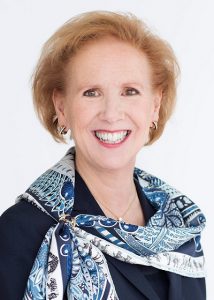Reimagining the Post Pandemic World by Hilary Pearson
 As the founding President of Philanthropic Foundations Canada for almost eighteen years, Hilary has worked with many of the largest private charitable foundations in the country. She is a member of the Board of Directors of Myriad Canada & co-chair of the Advisory Committee on the Charitable Sector, advising the federal government on policy and regulatory issues. Author of numerous articles and reviews on foundation philanthropy, Hilary Pearson writes as follows in her blog.
As the founding President of Philanthropic Foundations Canada for almost eighteen years, Hilary has worked with many of the largest private charitable foundations in the country. She is a member of the Board of Directors of Myriad Canada & co-chair of the Advisory Committee on the Charitable Sector, advising the federal government on policy and regulatory issues. Author of numerous articles and reviews on foundation philanthropy, Hilary Pearson writes as follows in her blog.
A year ago, towards the end of April 2020, Philanthropic Foundations Canada hosted a conversation about Canadian philanthropy and its commitment to a world in the throes of a growing pandemic. In that conversation, the participants were forward-looking. Even though we were being pressed by fear to hunker down, to think locally, we wanted to look forward, and to discuss our opportunity as a country to re-imagine and to rebuild our own communities and the global community.
We could see already that the pandemic was not just a health crisis, but a crisis made worse by inequality. We could see that weaknesses and gaps in the global health system would get worse: access to water and hygiene, food security, children’s health and education, discrimination and violence against women and girls. And we could see that if the virus couldn’t be successfully fought in Brazil or Bangladesh or South Africa it would continue to be a danger everywhere.
More than ever, we need and will continue to need a robust global health system. The work of the World Health Organization is crucial – global data collection and sharing, global guidance, coordination of supplies and training of health workers and coordination of global research and development of therapeutics and vaccines against COVID-19. Indeed, the whole family of multilateral organizations in the UN system such as WHO, UNICEF and the Food and Agricultural Organization is critical to the work of building the global resilience of all (including resilience against the crises caused by climate change, ranging from forced migrations to new pandemics).
We face huge transitions. How can we as funders help to make those transitions easier for those most vulnerable who live next door to us and across the world from us? In the middle of the last century, many of the multilateral organizations that the world depends on were created with the imagination and leadership of Canadians. As individuals and civil society organizations we have opportunities now to engage directly in maintaining this global network. And certainly, foundations have the resources. We can fund. One way to do this globally is to support the WHO COVID-19 Solidarity Response Fund (see below for details). But let’s also use our time to think about transition, adaptation, resilience and creativity in the 2020s for our country and to advocate for an effective global system that helps us all cope more effectively with future crises.
Darren Walker of the Ford Foundation in a recent post on the post-pandemic world asks us to consider: “If the pandemic revealed our global web of mutuality, how can we better support leaders on the ground, connect across countries and continents, and rebuild multilaterally?” In the world to come, he succinctly expresses our collective task (with philanthropy’s help): “We must reform systems and structures, while we reimagine what’s possible with our partners around the world, heeding their best ideas. Relief, recovery, reform, reimagination – this remains the path to better days.” The last twelve months have shown us the truth of this.
The WHO Foundation and the Solidarity Response Fund
One year ago, in March 2020, WHO created the COVID-19 Solidarity Response Fund to respond to the unprecedented show of support by individuals and companies to help WHO in the fight against COVID-19. Powered by the WHO Foundation, an independent grantmaking foundation launched in 2020, the Solidarity Response Fund is an innovative platform to enable private companies, individuals and other organizations to contribute directly to global efforts to prevent, detect, and respond to COVID-19 around the world. Canadian foundations can legally grant to the Solidarity Response Fund thanks to the Myriad Canada Foundation. The Fund has raised and disbursed more than US $242 Million from over 661,000 donors. The work in 2021 builds on the progress achieved in 2020 and continues to support the response in countries towards suppressing transmission, reducing exposure, countering misinformation and disinformation, protecting the vulnerable, reducing mortality and morbidity rates and increasing equitable access to diagnostics and vaccines for all. Donors can now access and enrich global health in a way that was never possible before.

